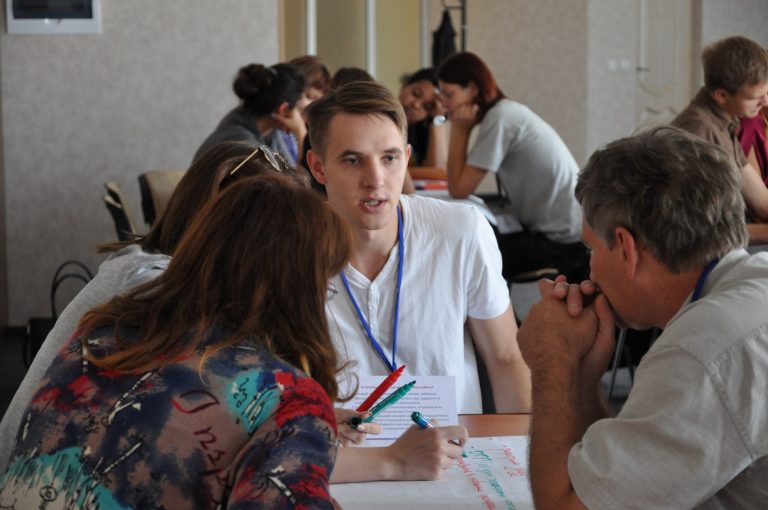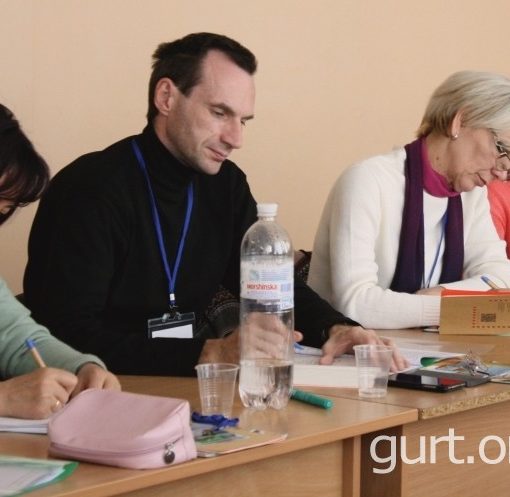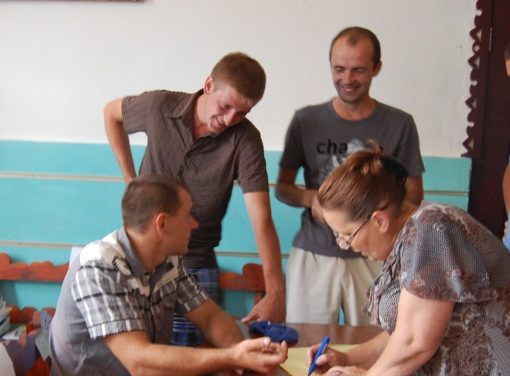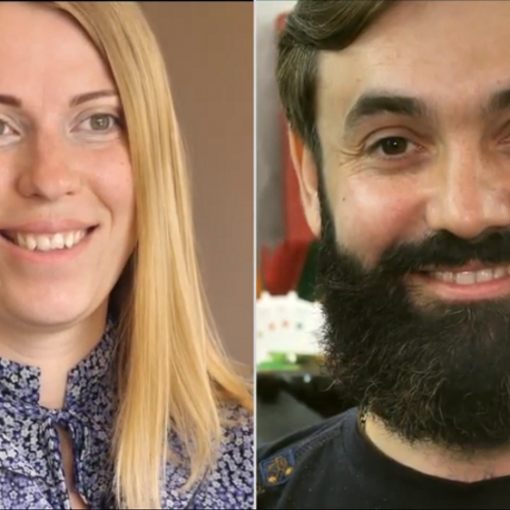GURT Resource Centre invited the journalists-volunteers from five Eastern oblasts of Ukraine (Donetsk, Dnipropetrovsk, Zaporizhzhia, Luhansk, and Kharkiv) to deepen their communication skills. September 9-10, 2017, in the capital two-day workshop “Communication in journalism. Support of the networks for regional journalists of GURT” was conducted. This event was organized within the special media project “Information for conscious actions: hear the voice of people affected by the conflict in eastern Ukraine”, which is implemented by GURT Resource Centre and supported by the Media Development Fund of the U.S. Embassy in Ukraine.

These two days were full of intensive work. The first day was devoted to the nuances of communication. Lesia Kharchenko, a journalist with extensive experience in working on leading Ukrainian TV channels, a professional in the field of documentary cinema, shared the secrets of professional skills. The participants learnt more about the peculiarities of the work during the interview, how to reveal your character and search approaches to him. The couch dedicated the part of the conversation to the issues of journalistic ethics and responsibility.
Except for the theory, there also was a practical part. The practical tasks involved exercises with texts. Lesia Kharchenko spoke, illustrating her words with concrete examples of how accurately to choose a suitable title to the text, how to find the right words to describe an event or a phenomenon, how to avoid unnecessary things in the message.

The second day was dedicated to finding ways for further cooperation of the regional network of social reporters with the GURT web-portal, after the completion of the project. The meeting was conducted in the World Café format with facilitating by Iuliia Panchenko, editor of the GURT web-portal.
This method of dialogue gives an opportunity to participants to communicate with each other, to exchange experience, to produce new thoughts and ideas. Attention was focused on finding interesting topics and formats for future cooperation, organizational and working aspects, on providing of the effective network functioning.

Diana

Kateryna Kuchina, CEO of “Social Fund” (Melitopol, Zaporizhzhia oblast), also noted the importance of the cooperation between public activists-journalists and all, who work with information: “Only active reciprocity can bring success in the public sector. Unfortunately, the part of Ukrainians remains passive. The more channels we use to deliver information to the audience, the more often we share success stories, positive experience, the better results can be”.

The journalist-volunteer from Dnipro Maryna Boichuk said that the project helped her to rethink her attitude to internally displaced persons: “I understood that there are different people, and it is impossible to treat everyone equally. I was lucky to deal with people, who were not lost in a new place; on the contrary, they contributed something new to the host communities: they organized events, started new activities, even involved not very active locals. Not circumstances changed them, but they began to change the world around them”.

“I am happy to attend this training, – Viroslav Tsiupiak, CEO of NGO “Community of active youth” from Dnipro, told. – Civil society in our country is developing, and the question of informing is important. Now the creation and development of local media are the central question. Such media stimulate our citizens in the regions. Today we had an opportunity to exchange ideas. After returning home, each of us will comprehend to the end things, heard here – and from that something new will emerge”.





